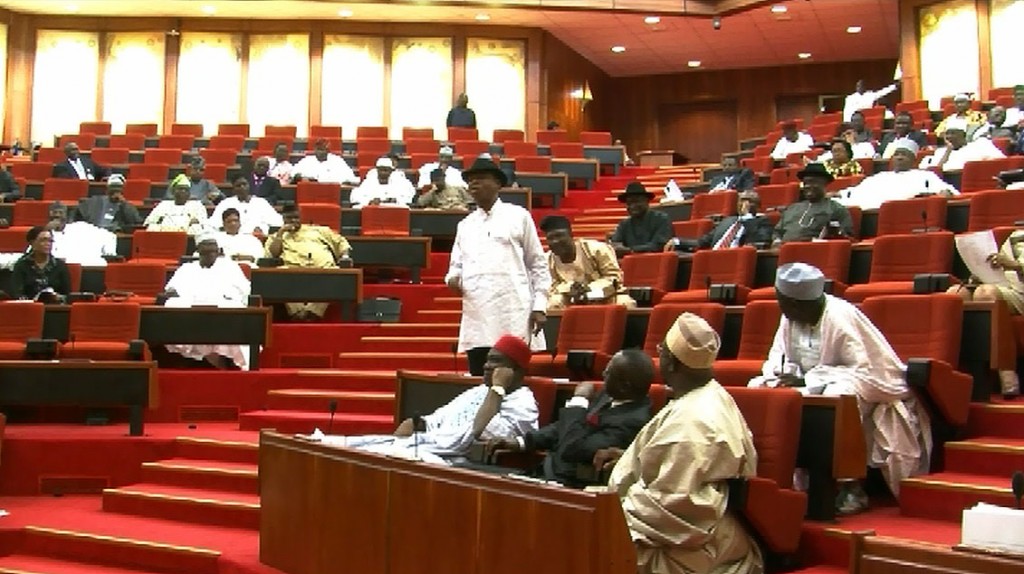In compliance with stipulations in the Economic Community of West African States (ECOWAS) Protocol on Good Governance which asks parliaments to pass electoral acts not less than six months before elections, the Senate yesterday passed 2014 Electoral Act (Amendment) Bill with a provision empowering the Independent National Electoral Commission (INEC) to adopt electronic voting device if it so wishes.
This decision was a marked departure from the parliament’s earlier decision which prohibited the use of electronic voting machine as provided in Section 152 (2) of the 2010 Electoral Act.
This provision was however, amended in 2014 Electoral Act with a view to enabling INEC to determine the form of voting it chooses to adopt whether it is electronic or otherwise.
“Voting at an election under this Act shall be in accordance with the procedure determined by the INEC,” it said.
While presenting the report of the Senate Joint Committee on the Review of the 1999 Constitution on Electoral Act Amendment for passage yesterday, Senate Leader, Victor Ndoma-Egba, said Section 152 (2) of the Electoral Act 2010 was so amended “to allow INEC determine the procedure for voting at an election, thereby removing the prohibition of electronic voting.”
The Senate also rejected a proposal seeking to incorporate presidential debates in the Electoral Act.
The proposal, which sought to amend Section 100 of 2010 Electoral Act with a view to achieving this objective, was rejected in view of the committee’s report that “election debates should remain outside the purview of the law.”
The lawmakers also threw away a proposal seeking to transfer the onus of proof of election regularities at election tribunals to INEC, with insistence that the burden of proof should remain the responsibility of the petitioner.
The Senate also rejected the proposed amendment to Section 25 of 2010 Electoral Act which sought to empower INEC to conduct all elections in one day, submitting that “INEC as currently constituted lacks the capacity to manage an electoral process of that scale on a single day.”
The Senate as well rejected the proposed amendment to Section 87 of the Electoral Act seeking to empower INEC to disqualify any candidate who fails to comply with provisions of the constitution as well as the Electoral Act.
This proposal was rejected in view of the committee’s report that “the court was the appropriate forum to determine the regularity or otherwise of party primary.”
But the parliament amended Section 133 of the Electoral Act by extending the period for the constitution of election tribunals from the previous 14 days to 30 days before the conduct of any election.
It also amended Section 77(1) by extending the period for the release of certified true copies of documents requested from the Resident Electoral Commissioner by any party during the pursuit of an election petition from the initial seven days in the 2010 Electoral Act to 14 days after such an application is made.
It also incorporated Sections 115A and 115B which empower the executive council of an area council to impeach the chairman or vice-chairman of a council on the grounds of incapacity.
It as well empowered the vice-chairman or a relevant leader to occupy the chairman’s position whenever the need arises.
The amendment also extends the process of transferring voters as well as issuance of duplicate voters’ card from the current 30 days to 60 days before elections.
The committee said this was done “to give INEC sufficient time to process the transfer of voters and issuance of duplicate voters’ card.”







